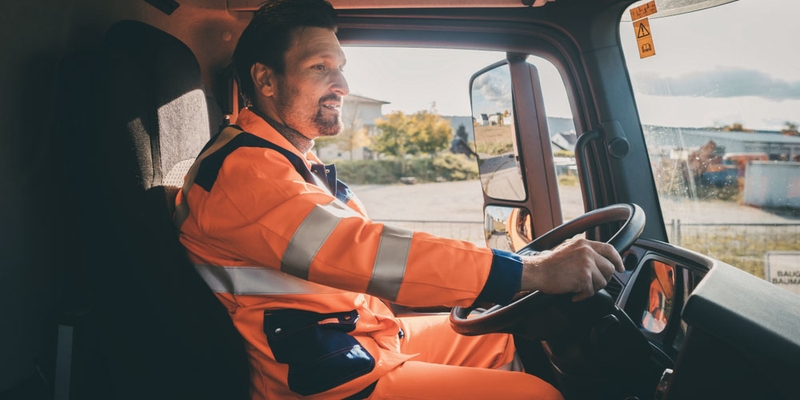
If you are not redirected within 30 seconds, please click here to continue.
Samedi: 10h – 16h HAE

If you are not redirected within 30 seconds, please click here to continue.
If you are not redirected within 30 seconds, please click here to continue.
OPP Issues New Towing Guidelines for the GTA

The Ontario Provincial Police (OPP) published a new set of guidelines for towing operators and companies to abide by when providing their services to the OPP in the Greater Toronto Area (GTA).
The rules come as a result of the provincial government’s towing task force, which oversees the towing industry in Ontario, and outlines what tow truck drivers’ responsibilities are when responding to a towing request from the OPP. Police-requested towing can be either:
- A non-legislated towing request. Police broadcast a tow request over the OPP media radio channel on behalf of a vehicle owner who is not present or cannot authorize a tow because they are injured from a car accident or incapacitated.
- A legislated towing request. Police broadcast a tow request over the OPP media radio channel to haul away a vehicle for impoundment related to a serious traffic violation such as stunt driving or impaired driving.
The OPP guidelines also state only one tow truck will be involved for every vehicle at a roadside pullover or collision scene unless the police request additional tow trucks. Any tow truck that stops or parks within 200 metres of a collision scene that is not needed will be ordered to leave the area immediately. Moreover, tow trucks are no allowed to park on ramps, highways, or prohibited areas along provincial highways.
Tow truck operator’s responsibilities when towing for a vehicle owner
When a tow truck operator responds to a service call for a vehicle owner (a non-legislated towing request), the OPP says operators must:
- Provide an estimated cost for towing and storage services, which the vehicle owner has the right to refuse.
- Provide the vehicle owner and police with the phone number of the towing company and its impound facility.
- Not tow any vehicle if the driver can drive it to the nearest Collision Reporting Centre and that vehicle is safe to drive.
Don't waste time calling around for auto insurance
Use RATESDOTCA to shop around, and compare multiple quotes at the same time.
Tow truck operator’s responsibilities when towing for the OPP
When responding to a legislated towing request, tow truck operators must:
- Impound the vehicle in the region or county from where it was towed.
- The towing company or impound operator will not allow the vehicle to be moved or released from the impound facility without authorization from the OPP.
- Provide their driver’s licence, documents related to the tow truck, and their Commercial Vehicle Operator’s Registration (CVOR) to the police and Collision Reporting Centre employees.
The Insurance Bureau of Canada (IBC) supports the OPP’s new GTA guidelines, saying the rules provide a clear direction to tow truck drivers, towing companies, and Ontario’s motorists.
"IBC applauds the OPP for developing these guidelines for towing services," said Kim Donaldson, Vice-President, Ontario, IBC, in a press release. "These guidelines are another tool to help protect drivers and ensure that at the scene of a collision, the custody of the vehicle always rests with the insurer and vehicle owner."
Need a tow in the GTA? Here’s what you should know
Depending on your coverage, your car insurance policy may cover you for the cost of a tow.
For example, some insurance companies may provide roadside assistance to their customers. Or if you’re in a collision for which you are at fault, have collision or all-perils coverage on your policy, and you cannot drive the vehicle, your collision or all-perils coverage will pay for the tow. If you’re not at fault for the accident, it is the direct compensation-property damage (DCPD) portion of your policy that will cover the cost of towing.
Regardless of who is at fault for a car accident, when getting a tow, you have rights, including:
- Deciding which towing company can tow your vehicle and to where (unless directed by the police).
- Calling your insurer for advice on which towing company to choose.
- Signing a permission form with the tow truck operator before the tow commences.
- The tow truck operator must give you an itemized invoice before they are paid for their services, and you are entitled to get a receipt after paying.
- Paying for towing services using a credit card or debit card if you wish.
- Declining to store your vehicle at a specific impound facility (unless directed by your insurer).
- You never have to sign a blank contract or take a referral from a towing company.
According to the Ontario government, 1,600 tow truck companies are registered with the Ministry of Transportation’s CVOR program. Ontario’s Consumer Protection Act contains rules related to the towing and storage of vehicles designed to protect consumers.
Get money-saving tips in your inbox.
Stay on top of personal finance tips from our money experts!









